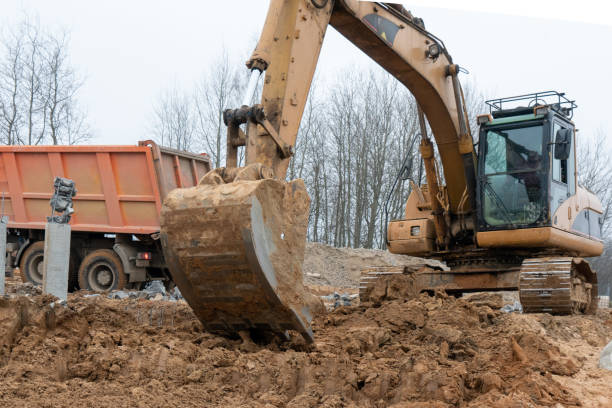Before any construction project begins, one crucial step sets the stage for everything to follow: site preparation. Whether you're building a home, a commercial structure, or a large-scale development, hiring the right excavating contractor can make or break your project. These professionals are responsible for clearing the land, leveling the ground, and ensuring a stable foundation for your structure. In this blog, we'll walk you through what to look for when hiring an excavating contractor to ensure your project gets off to a strong and seamless start.
1. Experience and Reputation
When evaluating potential contractors, start with their experience in the field. An experienced excavating contractor will understand the complexities of soil types, drainage, grading, and equipment handling. Ask how many years they’ve been in business and whether they specialize in residential, commercial, or industrial excavation.
Check reviews, testimonials, and references. A contractor with a solid reputation will have happy clients and a track record of successful projects. You can also check their Better Business Bureau (BBB) rating or online profiles on platforms like Angi or Houzz.
2. Proper Licensing and Insurance
Excavation is a high-risk job. From heavy machinery operation to underground utility detection, it involves a lot of liability. That’s why it's critical to choose a licensed and insured excavating contractor.
Ask to see their business license and proof of general liability and workers’ compensation insurance. This not only protects the contractor's workers but also safeguards you from financial and legal responsibility if something goes wrong.
3. Range of Services Offered
A qualified excavating contractor should offer a comprehensive range of services, such as:
- Site clearing and grading
- Trenching and backfilling
- Foundation excavation
- Land leveling
- Erosion control
- Drainage solutions
Choosing a contractor who can handle multiple aspects of site preparation can streamline your project and save you from hiring multiple vendors.
4. Modern Equipment and Technology
The quality of work depends heavily on the tools and machinery used. Make sure the contractor has access to modern, well-maintained equipment like bulldozers, backhoes, trenchers, and dump trucks. Some advanced contractors also use GPS and laser-guided systems for precision excavation and grading.
Ask how often they service their equipment and whether they own or rent the machinery. Contractors who own their equipment often offer better scheduling and reliability.
5. Understanding of Local Regulations
Each region has its own rules and permits for excavation. A seasoned excavating contractor will be well-versed in local building codes and zoning laws, as well as requirements for erosion control and stormwater management.
Before starting any digging, they should also coordinate with local utility companies to prevent accidental hits to underground lines. Ask if they follow “Call Before You Dig” protocols, which are essential for safety and compliance.
6. Transparent Pricing and Detailed Estimates
A professional contractor should offer a clear, written estimate that breaks down the scope of work, materials, labor, equipment, and timeline. Avoid vague estimates or handshake deals.
Compare estimates from several contractors, but don’t automatically go with the lowest bid. A significantly lower price might indicate subpar equipment, lack of experience, or shortcuts that could end up costing you more in the long run.
7. Communication and Professionalism
From the first consultation to project completion, communication is key. Your excavating contractor should be responsive, patient with your questions, and clear in their explanations.
Also, consider how professional their team is. Do they show up on time for meetings? Are they courteous and respectful of your property? These small details often reflect the overall quality of their service.
Conclusion
Hiring the right excavating contractor is a foundational step for your construction project’s success. By focusing on experience, licensing, service scope, equipment quality, and communication, you can ensure that your site is properly prepared and your project stays on track.
Taking the time to vet your contractor now can save you from delays, legal issues, and costly repairs down the road. Choose wisely—and dig into your next project with confidence!





Comments